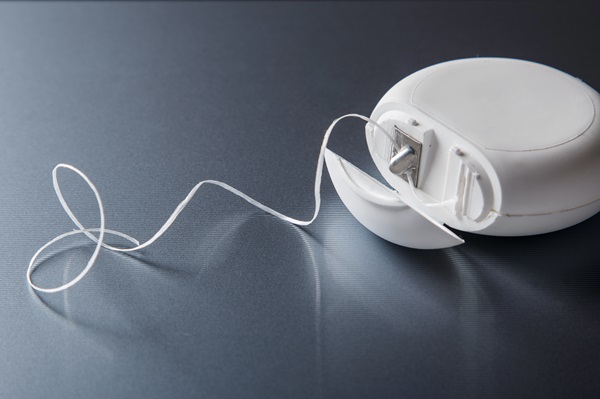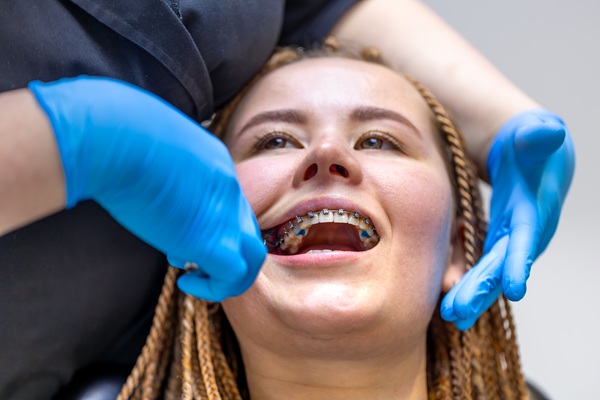In the dental industry, us dentists are the first to remind you how important flossing is and strongly recommend that everyone do it every day, either in the morning or at night.
While regularly brushing our teeth is all well and good and does get the job done in terms of cleaning your teeth — once you look at it below the surface, it may not always be enough. Toothbrushes have a hard time reaching the gaps between your teeth, making it useless when it comes to those stubborn little pieces of leftover food and residue between your teeth.
Now, while we do advocate for flossing, it is up to you to choose your floss preferences along with how you want to integrate it into your teeth cleaning routine.
Let’s discuss two of the most common flosses to see which one suits your preferences!
What is the Difference of a Water Floss to a Regular Floss?
Water flossing and regular flossing are different mainly in how they work and how easy they are to use. Water flossing uses a stream of water to remove food residue and plaque from between teeth and along the gums.
This method is especially good for people with braces or implants. It’s usually easier to use, especially for those who find it hard to handle small objects, but it costs more initially and needs more upkeep.
Regular flossing, however, uses a thin string to clean between teeth by hand. It’s cheaper and easy to carry around, but it requires the right technique and can take more time.
Now that we know the basic differences between the two, let’s get down to its advantages and disadvantages!
Water Flossing
As mentioned earlier, water flossing is especially helpful for people with braces or implants because it lets them clean between their teeth without risking damage to their dental work.
But water flossing isn’t just convenient. Here are some common pros and cons of using water flossers:
Advantages of Water Flossing:
Ease of Use
Water flossers are easy to use, particularly for individuals with limited manual dexterity.
Effective Residue Removal
Studies suggest water flossers can remove plaque effectively, reducing gingivitis and gum disease and overall leaving your teeth clean all over!
Gentle on Gums
The pulsating action of the water stream can actually be gentle and therapeutic for your gums, potentially improving gum health without causing irritation.
Disadvantages of Water Flossing:
Cost
Simply put, since water flosses are mechanical devices, they are definitely not the affordable option as it can cost quite a lot!
Maintenance
With all machines that use electricity, bacteria build up is inevitable which is why having a water floss means you regularly have to clean it before using it on your own teeth.
Hard to Transport
Given that these are bigger devices than your traditional floss, using it would make it less convenient for travel — making it harder for you to clean your teeth when you are not at home.
Now that we have a clear understanding of the pros and cons that water flossing offers — let’s move on to discuss our good old reliable: regular flossing.
Regular Flossing
Regular flossing usually involves using a thin, flexible string that you move with your fingers to clean between your teeth and remove food and plaque.
This method has been used for decades and is a reliable technique recommended by dentists all over the world.
Advantages of Regular Flossing:
Affordable
Traditional floss is inexpensive and widely available.
Effective
When done properly, regular flossing is very effective at removing plaque and lowering the risk of cavities and gum disease — making it a very effective cleaning tool!
Convenient
Floss is easy to carry and can be used anywhere, making it convenient for use throughout the day.
Disadvantages of Regular Flossing:
Technique Sensitivity
Requires proper technique to be effective, which some people may find challenging.
Gum Irritation
Improper flossing can cause gum irritation or bleeding.
Time-Consuming
Can be time-consuming, especially for individuals with dental appliances or tightly spaced teeth.
In the end, we acknowledge that both flossing methods are effective when it comes to cleaning your teeth completely. It all boils down to your own preferences such as convenience or any dental fixtures you may or may not have.
Depending on your own lifestyle, you can choose which one suits you best — what matters for us, is that at the end of the day, you floss regularly to help maintain your teeth’s cleanliness and health!
Need Experts in Oral Health?
In this industry, we understand that your smile is the best asset you could have and we are here to make sure that your assets are always in tip-top shape and taken care of!
If you want to make sure that your oral health is taken care of, Bellevue Hill Dental can provide a smooth journey to ensure you get a healthier and brighter smile! Talk to our professionals for expert advice about braces and other dental services you might need. Book a consultation now or call our line at (02) 9389 4748.



